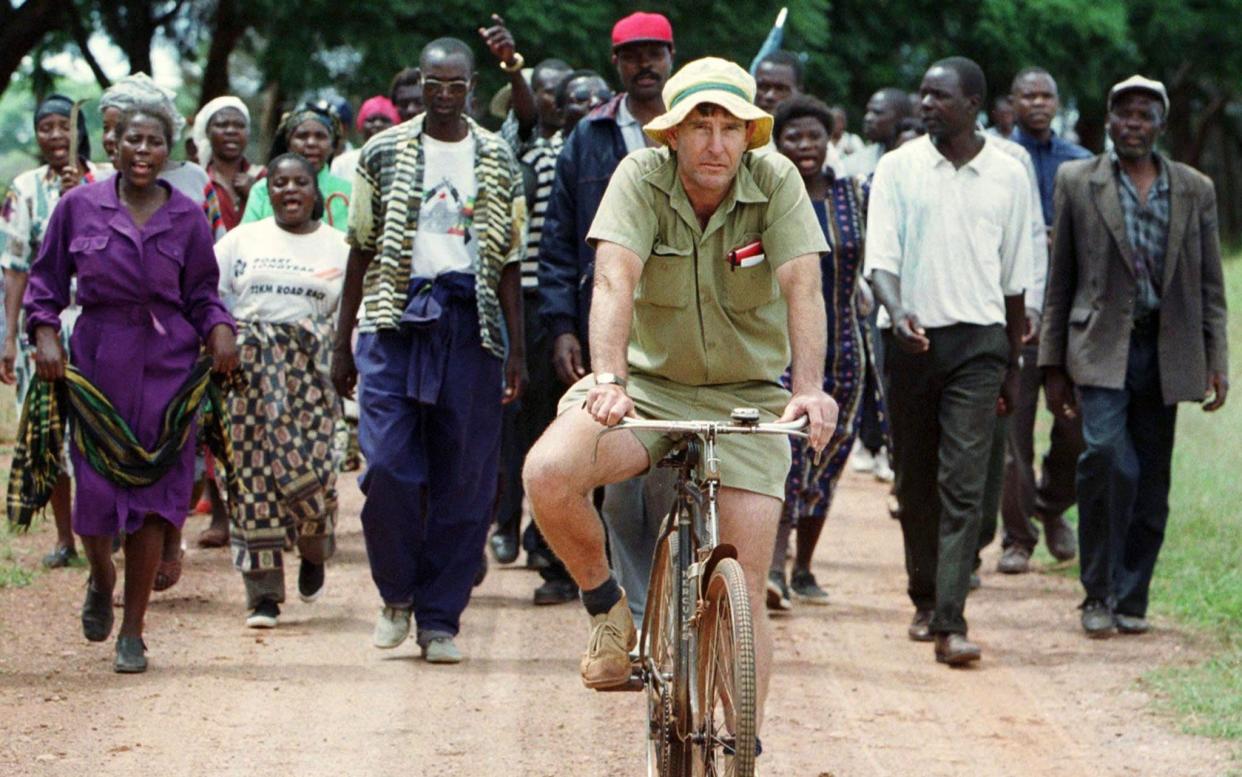Line in the sand crossed as Zimbabwe reaches a deal with evicted white farmers

Zimbabwe has agreed to pay nearly £3bn in compensation to white farmers who had their land taken from them nearly two decades ago in a significant new agreement.
After ten years of politically charged negotiations, on Monday an agreement was finally struck.
The Zimbabwean government agreed to pay about 50 per cent of the value of the capital assets such as buildings, livestock and machinery on their farms, which amounts to some £2.8 billion spread out between 3,200 evicted farmers.
The agreement is expected to be signed within weeks, but it is being treated with caution. Zimbabwe is bankrupt and is suffering from high inflation rates and food shortages. The government in Harare is currently unable to get international loans, or import enough fuel for its population.
Zimbabwe’s white farmers were successful, and their productivity formed the bedrock of the southern Africa nation’s economy.
However, their success was grounded in racialised system of land ownership. Prior to the independence of Rhodesia in 1980, black Africans could not buy land in areas set aside for white people.
Twenty years ago they were violently chased off their farms by government supporters, and several farmers and some of their workers were killed and their homes torched in brutal raids.
Over the next five years, nearly all productive white-owned farms were invaded and often destroyed., with much of that old land still unused to this day.
Notably, the deal does not include any compensation for the value of the land itself. The Zimbabwean government says that Britain must pay evicted white farmers for the land as it was originally taken from locals without payment, mostly by British settlers.
A plan is currently being drawn up for a domestic “Land Bank” which would restore title deeds for the land which was nationalised in 2005.
“The deal agreed with the government is positive, but I will remain wary of how it is structured,” said Doug Taylor-Freeme, a former long-serving president of the Commercial Farmers Union (CFU).
The news comes after the Zimbabwean government agreed to pay about 500 impoverished white farmers still living in Zimbabwe a small amount of money as an advance on their compensation.
One farmer who attended the CFU’s briefing, which was closed to the media, said: “We don’t believe Zimbabwe will ever have money to pay us. But maybe one day my grandchildren will get some of the money.”

